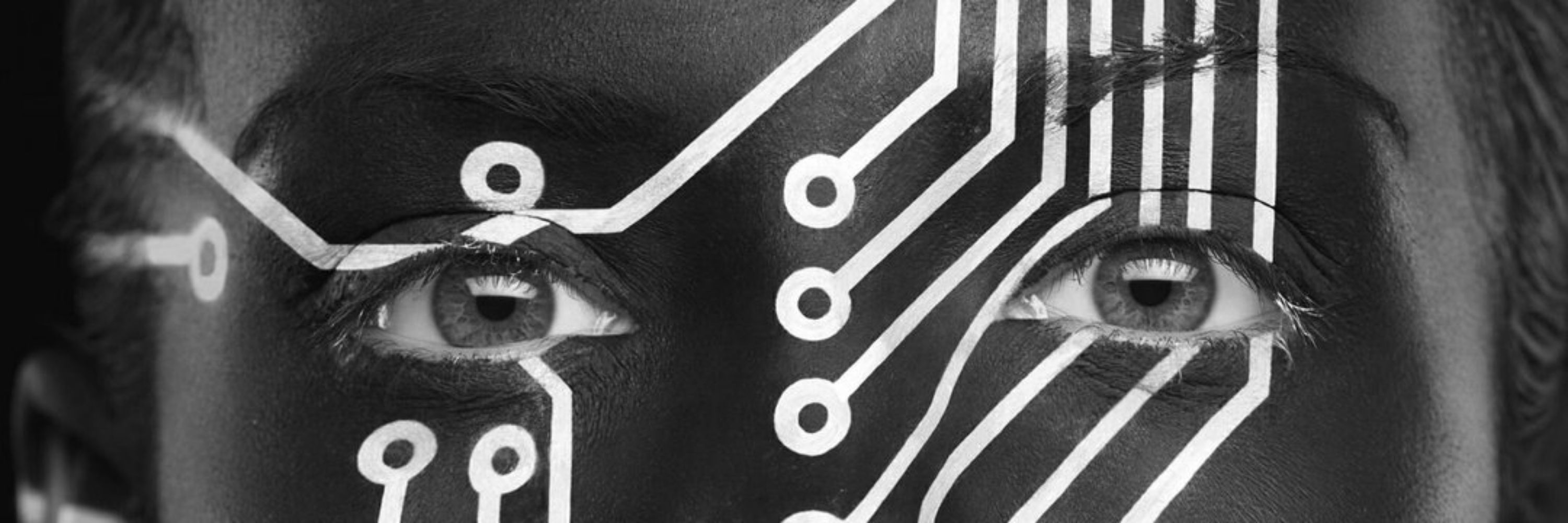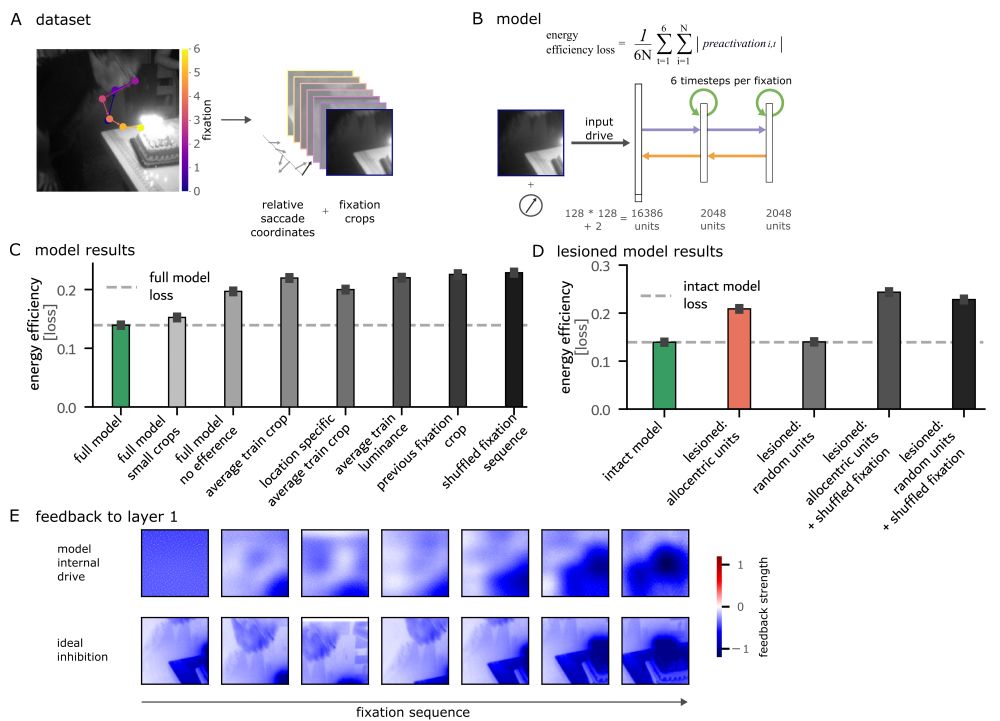
Tim Kietzmann
@timkietzmann.bsky.social
ML meets Neuroscience #NeuroAI, Full Professor at the Institute of Cognitive Science (Uni Osnabrück), prev. @ Donders Inst., Cambridge University
Do come and talk to us about any of the above and whatever #NeuroAI is on your mind. Excited for this upcoming #CCN2025, and looking forward to exchanging ideas with all of you.
All posters can be found here: www.kietzmannlab.org/ccn2025/
All posters can be found here: www.kietzmannlab.org/ccn2025/
www.kietzmannlab.org
August 8, 2025 at 2:21 PM
Do come and talk to us about any of the above and whatever #NeuroAI is on your mind. Excited for this upcoming #CCN2025, and looking forward to exchanging ideas with all of you.
All posters can be found here: www.kietzmannlab.org/ccn2025/
All posters can be found here: www.kietzmannlab.org/ccn2025/
And last but not least Fraser Smith's work on understanding how occluded objects are represented in visual cortex.
Time: Tuesday, August 12, 1:30 – 4:30 pm
Location: A66, de Brug & E‑Hall
Time: Tuesday, August 12, 1:30 – 4:30 pm
Location: A66, de Brug & E‑Hall
August 8, 2025 at 2:21 PM
And last but not least Fraser Smith's work on understanding how occluded objects are represented in visual cortex.
Time: Tuesday, August 12, 1:30 – 4:30 pm
Location: A66, de Brug & E‑Hall
Time: Tuesday, August 12, 1:30 – 4:30 pm
Location: A66, de Brug & E‑Hall
Please also check out Songyun Bai's poster on further AVS findings that we were involved in: Neural oscillations encode context-based informativeness during naturalistic free viewing.
Time: Tuesday, August 12, 1:30 – 4:30 pm
Location: A165, de Brug & E‑Hall
Time: Tuesday, August 12, 1:30 – 4:30 pm
Location: A165, de Brug & E‑Hall
August 8, 2025 at 2:21 PM
Please also check out Songyun Bai's poster on further AVS findings that we were involved in: Neural oscillations encode context-based informativeness during naturalistic free viewing.
Time: Tuesday, August 12, 1:30 – 4:30 pm
Location: A165, de Brug & E‑Hall
Time: Tuesday, August 12, 1:30 – 4:30 pm
Location: A165, de Brug & E‑Hall
Friday keeps on giving. Interested in representational drift in macaques? Then come check out Dan's (@anthesdaniel.bsky.social) work providing first evidence for a sequence of three different, yet comparatively stable clusters in V4.
Time: August 15, 2-5pm
Location: Poster C142, de Brug & E‑Hall
Time: August 15, 2-5pm
Location: Poster C142, de Brug & E‑Hall

August 8, 2025 at 2:21 PM
Friday keeps on giving. Interested in representational drift in macaques? Then come check out Dan's (@anthesdaniel.bsky.social) work providing first evidence for a sequence of three different, yet comparatively stable clusters in V4.
Time: August 15, 2-5pm
Location: Poster C142, de Brug & E‑Hall
Time: August 15, 2-5pm
Location: Poster C142, de Brug & E‑Hall
Another Friday feat: Philip Sulewski's (@psulewski.bsky.social) and @thonor.bsky.social's
modelling work. Predictive remapping and allocentric coding as consequences of energy efficiency in RNN models of active vision
Time: Friday, August 15, 2:00 – 5:00 pm,
Location: Poster C112, de Brug & E‑Hall
modelling work. Predictive remapping and allocentric coding as consequences of energy efficiency in RNN models of active vision
Time: Friday, August 15, 2:00 – 5:00 pm,
Location: Poster C112, de Brug & E‑Hall

August 8, 2025 at 2:21 PM
Another Friday feat: Philip Sulewski's (@psulewski.bsky.social) and @thonor.bsky.social's
modelling work. Predictive remapping and allocentric coding as consequences of energy efficiency in RNN models of active vision
Time: Friday, August 15, 2:00 – 5:00 pm,
Location: Poster C112, de Brug & E‑Hall
modelling work. Predictive remapping and allocentric coding as consequences of energy efficiency in RNN models of active vision
Time: Friday, August 15, 2:00 – 5:00 pm,
Location: Poster C112, de Brug & E‑Hall
Also on Friday, Victoria Bosch (@initself.bsky.social) presents her superb work on fusing brain scans with LLMs.
CorText-AMA: brain-language fusion as a new tool for probing visually evoked brain responses
Time: 2 – 5 pm
Location: Poster C119, de Brug & E‑Hall
2025.ccneuro.org/poster/?id=n...
CorText-AMA: brain-language fusion as a new tool for probing visually evoked brain responses
Time: 2 – 5 pm
Location: Poster C119, de Brug & E‑Hall
2025.ccneuro.org/poster/?id=n...

August 8, 2025 at 2:21 PM
Also on Friday, Victoria Bosch (@initself.bsky.social) presents her superb work on fusing brain scans with LLMs.
CorText-AMA: brain-language fusion as a new tool for probing visually evoked brain responses
Time: 2 – 5 pm
Location: Poster C119, de Brug & E‑Hall
2025.ccneuro.org/poster/?id=n...
CorText-AMA: brain-language fusion as a new tool for probing visually evoked brain responses
Time: 2 – 5 pm
Location: Poster C119, de Brug & E‑Hall
2025.ccneuro.org/poster/?id=n...
On Friday, Carmen @carmenamme.bsky.social has a talk & poster on exciting AVS analyses. Encoding of Fixation-Specific Visual Information: No Evidence of Information Carry-Over between Fixations
Talk: 12:00 – 1:00 pm, Room C1.04
Poster: C153, 2:00 – 5:00 pm, de Brug &E‑Hall
www.kietzmannlab.org/avs/
Talk: 12:00 – 1:00 pm, Room C1.04
Poster: C153, 2:00 – 5:00 pm, de Brug &E‑Hall
www.kietzmannlab.org/avs/

August 8, 2025 at 2:21 PM
On Friday, Carmen @carmenamme.bsky.social has a talk & poster on exciting AVS analyses. Encoding of Fixation-Specific Visual Information: No Evidence of Information Carry-Over between Fixations
Talk: 12:00 – 1:00 pm, Room C1.04
Poster: C153, 2:00 – 5:00 pm, de Brug &E‑Hall
www.kietzmannlab.org/avs/
Talk: 12:00 – 1:00 pm, Room C1.04
Poster: C153, 2:00 – 5:00 pm, de Brug &E‑Hall
www.kietzmannlab.org/avs/
Also on Tuesday, Rowan Sommers will present our new WiNN architecture. Title: Sparks of cognitive flexibility: self-guided context inference for flexible stimulus-response mapping by attentional routing
Time: August 12, 1:30 – 4:30 pm
Location: A136, de Brug & E‑Hall
Time: August 12, 1:30 – 4:30 pm
Location: A136, de Brug & E‑Hall
August 8, 2025 at 2:21 PM
Also on Tuesday, Rowan Sommers will present our new WiNN architecture. Title: Sparks of cognitive flexibility: self-guided context inference for flexible stimulus-response mapping by attentional routing
Time: August 12, 1:30 – 4:30 pm
Location: A136, de Brug & E‑Hall
Time: August 12, 1:30 – 4:30 pm
Location: A136, de Brug & E‑Hall
On Tuesday, Sushrut's (@sushrutthorat.bsky.social) Glimpse Prediction Networks will make their debut: a self-supervised deep learning approach for scene-representations that align extremely well with human ventral stream.
Time: August 12, 1:30 – 4:30 pm
Location: A55, de Brug & E‑Hall
Time: August 12, 1:30 – 4:30 pm
Location: A55, de Brug & E‑Hall

August 8, 2025 at 2:21 PM
On Tuesday, Sushrut's (@sushrutthorat.bsky.social) Glimpse Prediction Networks will make their debut: a self-supervised deep learning approach for scene-representations that align extremely well with human ventral stream.
Time: August 12, 1:30 – 4:30 pm
Location: A55, de Brug & E‑Hall
Time: August 12, 1:30 – 4:30 pm
Location: A55, de Brug & E‑Hall
In the "Modeling the Physical Brain" event, I will be speaking about our work on topographic neural networks.
Time: Monday, August 11, 11:30 am – 6:00 pm
Location: Room A2.07
Paper: www.nature.com/articles/s41...
Time: Monday, August 11, 11:30 am – 6:00 pm
Location: Room A2.07
Paper: www.nature.com/articles/s41...
www.nature.com
August 8, 2025 at 2:21 PM
In the "Modeling the Physical Brain" event, I will be speaking about our work on topographic neural networks.
Time: Monday, August 11, 11:30 am – 6:00 pm
Location: Room A2.07
Paper: www.nature.com/articles/s41...
Time: Monday, August 11, 11:30 am – 6:00 pm
Location: Room A2.07
Paper: www.nature.com/articles/s41...
First, @zejinlu.bsky.social will talk about how adopting a human developmental visual diet yields robust, shape-based AI vision. Biological inspiration for the win!
Talk Time/Location: Monday, 3-6 pm, Room A2.11
Poster Time/Location: Friday, 2-5 pm, C116 at de Brug & E‑Hall
Talk Time/Location: Monday, 3-6 pm, Room A2.11
Poster Time/Location: Friday, 2-5 pm, C116 at de Brug & E‑Hall

August 8, 2025 at 2:21 PM
First, @zejinlu.bsky.social will talk about how adopting a human developmental visual diet yields robust, shape-based AI vision. Biological inspiration for the win!
Talk Time/Location: Monday, 3-6 pm, Room A2.11
Poster Time/Location: Friday, 2-5 pm, C116 at de Brug & E‑Hall
Talk Time/Location: Monday, 3-6 pm, Room A2.11
Poster Time/Location: Friday, 2-5 pm, C116 at de Brug & E‑Hall
For completeness sake: we know the other team and cite both of their papers in the preprint.
July 26, 2025 at 6:46 PM
For completeness sake: we know the other team and cite both of their papers in the preprint.
Devil is in the details as usual.
They (and others) focused on acuity, while we show that the actual gains do not come from acuity but the development of contrast sensitivity.
They (and others) focused on acuity, while we show that the actual gains do not come from acuity but the development of contrast sensitivity.
July 26, 2025 at 6:45 PM
Devil is in the details as usual.
They (and others) focused on acuity, while we show that the actual gains do not come from acuity but the development of contrast sensitivity.
They (and others) focused on acuity, while we show that the actual gains do not come from acuity but the development of contrast sensitivity.
To be honest, so far it has exceeded our expectations across the board.
A big surprise was that visual acuity (i.e. initial blurring) had so little impact. This is what others had focused on in the past. Instead, the development of contrast sensitivity gets you most of the way there.
A big surprise was that visual acuity (i.e. initial blurring) had so little impact. This is what others had focused on in the past. Instead, the development of contrast sensitivity gets you most of the way there.
July 8, 2025 at 9:00 PM
To be honest, so far it has exceeded our expectations across the board.
A big surprise was that visual acuity (i.e. initial blurring) had so little impact. This is what others had focused on in the past. Instead, the development of contrast sensitivity gets you most of the way there.
A big surprise was that visual acuity (i.e. initial blurring) had so little impact. This is what others had focused on in the past. Instead, the development of contrast sensitivity gets you most of the way there.
We are incredibly excited about this because DVD may offer a resource-efficient path towards safer, more human-like AI vision — and suggests that biology, neuroscience, and psychology have much to offer in guiding the next generation of artificial intelligence. #NeuroAI #AI /fin
July 8, 2025 at 1:04 PM
In summary, DVD-training yields models that rely on a fundamentally different feature set, shifting from distributed local textures to integrative, shape-based features as the foundation for their decisions. 9/
July 8, 2025 at 1:04 PM
In summary, DVD-training yields models that rely on a fundamentally different feature set, shifting from distributed local textures to integrative, shape-based features as the foundation for their decisions. 9/

